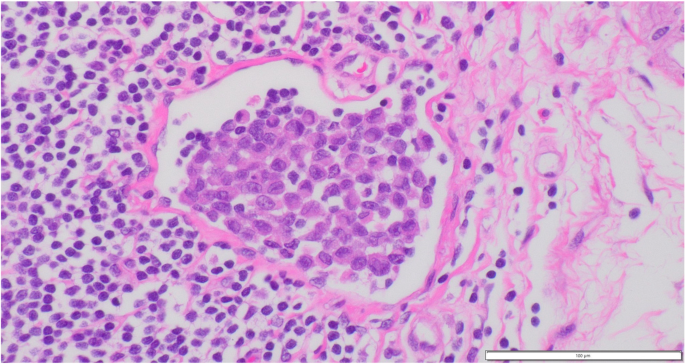Signet Ring Cell Carcinoma
Signet ring cell carcinoma (SRCC) is a rare and aggressive form of cancer primarily affecting the gastrointestinal tract, particularly the stomach. This cancer is characterised by its distinct cell appearance, resembling a signet ring under a microscope. Despite being a subtype of adenocarcinoma, SRCC poses treatment challenges due to its rapid progression and tendency to metastasise, particularly to the peritoneum.
Nature and Prevalence of SRCC
SRCC is a subtype of colorectal cancer (CRC) and is known for its aggressive behaviour. Globally, SRCC accounts for about 1% of all CRC cases. However, its prevalence is notably higher in India, where it affects a disproportionately larger number of younger individuals. In central and northern India, SRCC is becoming increasingly common, posing public health challenge.
Diagnosis and Challenges
Diagnosing SRCC can be difficult due to its aggressive nature and late presentation. Patients often receive a diagnosis at advanced stages, making treatment options limited and less effective. The cancer’s propensity to spread to the peritoneal cavity complicates management and contributes to a poor prognosis.
Recent Research Developments
Recent studies have introduced innovative methods to study SRCC. The team developed patient-derived organoids (PDOs) and patient-derived xenografts (PDXs) that serve as miniaturised models of human SRCC tumours. These models mimic the behaviour of actual tumours, allowing for closer examination and testing of potential treatments.
Therapeutic Vulnerabilities Uncovered
By analysing the PDO and PDX models, researchers identified unique molecular features of SRCC that explain its resistance to conventional chemotherapy. This research has led to the discovery of specific therapeutic vulnerabilities, which can be targeted with novel treatment approaches. Notably, a promising three-drug combination was found to shrink tumours and inhibit cancer spread in laboratory settings.
Future Directions in Treatment
The findings from this research open avenues for future clinical trials aimed at testing new treatment options for SRCC. Phase 1 clinical trials will be essential to evaluate the safety and efficacy of the identified drug combinations. This research could impact the management of SRCC, providing hope for better outcomes in affected patients.
Month: Current Affairs - April, 2025
Category: Science & Technology Current Affairs








